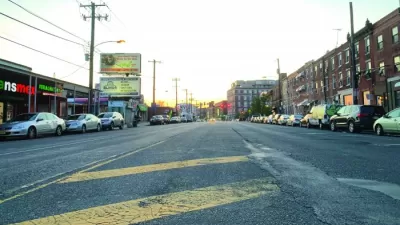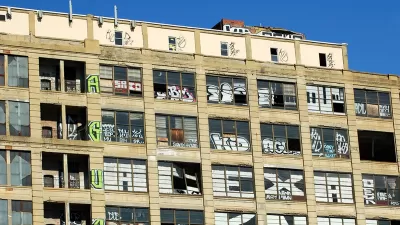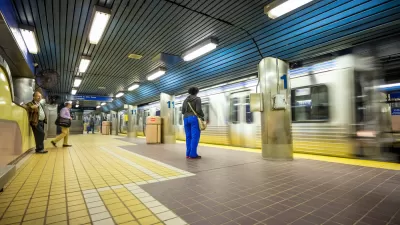Despite an August repaving of 22nd street in the Fairmount neighborhood, lane markings have yet to appear due to City Council scuffles on whether or not the street will undergo a road diet and add an additional bike lane.
As Inga Saffron reports for the The Philadelphia Inquirer, Councilmember William K. Greenlee, an at-large representative living in Fairmount, is stopping the current undertaking to stripe the street. According to Saffron, Greenlee is the first councilmember to invoke "the powers of a 2012 bill giving legislators final say over new segments of the bike network. That bill was Greenlee's baby."
Philadelphia has seen an increase in bicycle commuting since 2006, from 11,000 residents commuting by bike to work at least three days a week to 14,000 people in 2014. This seven-block segment would be a missing link within the city's bike network, creating the only northbound bike lane on the west side of City Center. Indeed, most residents in the neighborhood want less automobile capacity, despite Greenlee's concern that the bike lane will cause serious backups.
In addition, further along Spring Street, there already exists a dedicated bike lane. Other intersections of the city that have become major bike corridors saw the number of accidents fall by 30 percent. By clearly delineating space, all road users know their boundaries and use the street in a safer, less erratic manner. With no markings on 22nd Street, the seven-block road remains a free-for-all.
FULL STORY: Changing Skyline: Battling over bikes in Fairmount

Maui's Vacation Rental Debate Turns Ugly
Verbal attacks, misinformation campaigns and fistfights plague a high-stakes debate to convert thousands of vacation rentals into long-term housing.

Planetizen Federal Action Tracker
A weekly monitor of how Trump’s orders and actions are impacting planners and planning in America.

In Urban Planning, AI Prompting Could be the New Design Thinking
Creativity has long been key to great urban design. What if we see AI as our new creative partner?

King County Supportive Housing Program Offers Hope for Unhoused Residents
The county is taking a ‘Housing First’ approach that prioritizes getting people into housing, then offering wraparound supportive services.

Researchers Use AI to Get Clearer Picture of US Housing
Analysts are using artificial intelligence to supercharge their research by allowing them to comb through data faster. Though these AI tools can be error prone, they save time and housing researchers are optimistic about the future.

Making Shared Micromobility More Inclusive
Cities and shared mobility system operators can do more to include people with disabilities in planning and operations, per a new report.
Urban Design for Planners 1: Software Tools
This six-course series explores essential urban design concepts using open source software and equips planners with the tools they need to participate fully in the urban design process.
Planning for Universal Design
Learn the tools for implementing Universal Design in planning regulations.
planning NEXT
Appalachian Highlands Housing Partners
Mpact (founded as Rail~Volution)
City of Camden Redevelopment Agency
City of Astoria
City of Portland
City of Laramie





























